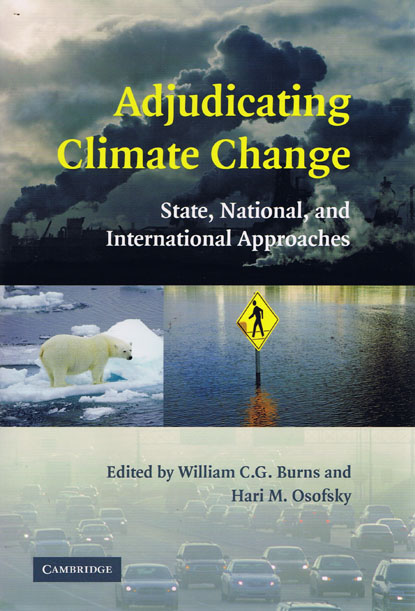We will be closed from 5pm Thursday 17th April for the Easter Bank Holidays, re-opening at 8.30am on Tuesday 22nd April. Any orders placed during this period will be processed when we re-open.

Courts have emerged as a crucial battleground in efforts to regulate climate change. Over the past several years, tribunals at every level of government around the world have seen claims regarding greenhouse gas emissions and impacts. These cases rely on diverse legal theories, but all focus on government regulation of climate change or the actions of major corporate emitters.
This book explores climate actions in state and national courts, as well as international tribunals, in order to explain their regulatory significance. It demonstrates the role that these cases play in broader debates over climate policy and argues that they serve as an important force in pressuring governments and emitters to address this crucial problem. As law firms and public interest organizations increasingly develop climate practice areas, the book serves as a crucial resource for practitioners, policymakers, and academics.